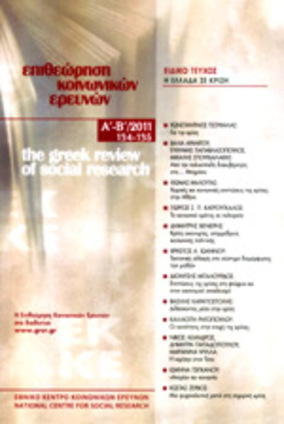Επιπτώσεις της κρίσης στη φτώχεια και στον οικονομικό αποκλεισμό : αρχικές μετρήσεις και προσαρμοστικές πολιτικές
Part of : Επιθεώρηση κοινωνικών ερευνών ; Vol.134/135, 2011, pages 165-192
Issue:
Pages:
165-192
Parallel Title:
Impact of crisis on poverty and economic exclusion : initial measurements and adaptive policies
Section Title:
Articles
Abstract:
The purpose of this article is to highlight some important methodological and conceptual challenges in understanding multidimensional poverty, as well as social and economic exclusion, issues that have major significance in the current economic recession. Our basic assumption is that the economic crisis makes economic exclusion the most important component of social exclusion. We believe that, equally significant as the relative income are inequalities in wealth and property, as well as other indicators of deprivation / exclusion of households. Based on data from EU-SILC 2008 and 2009, evidence suggests that in addition to the traditional high risk groups, high risk is also recorded in the case of indebted households, especially those with middle incomes, and in the case of individuals who do not have access to a bank account. In Greece, children, the elderly, single women, single parents, low-skilled workers, unemployed, inactive people of working age, individuals with disabilities, individuals living in rural areas and immigrants face greater risk of poverty or social exclusion.
Subject:
Subject (LC):




